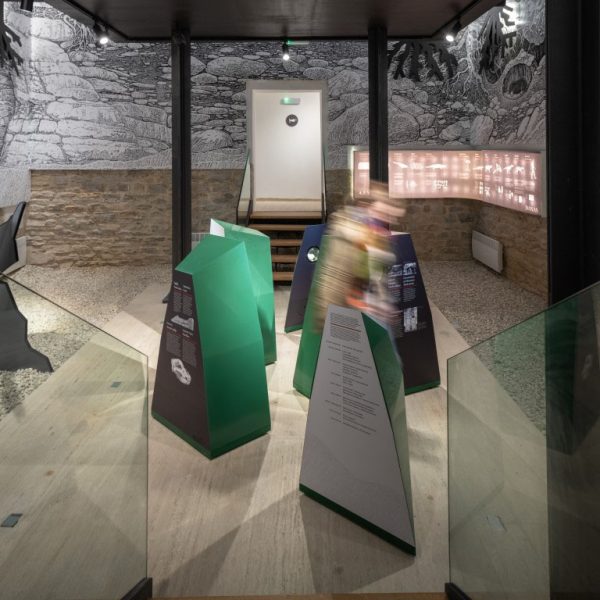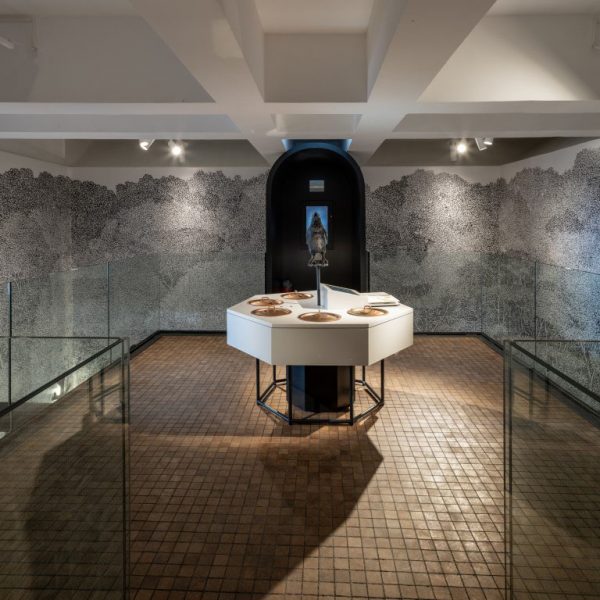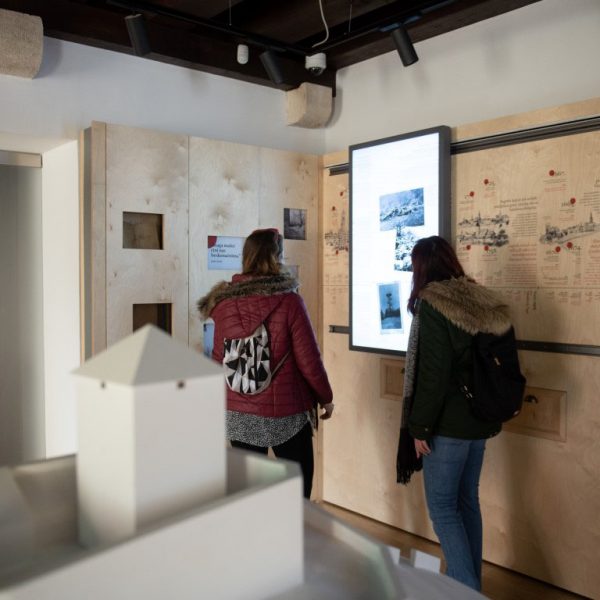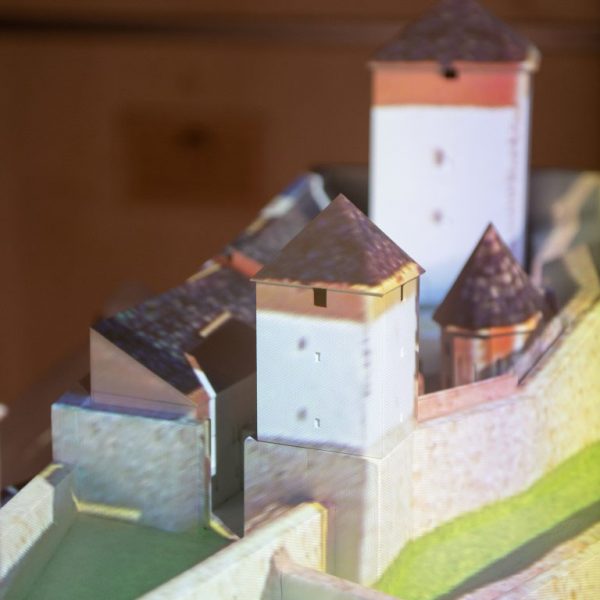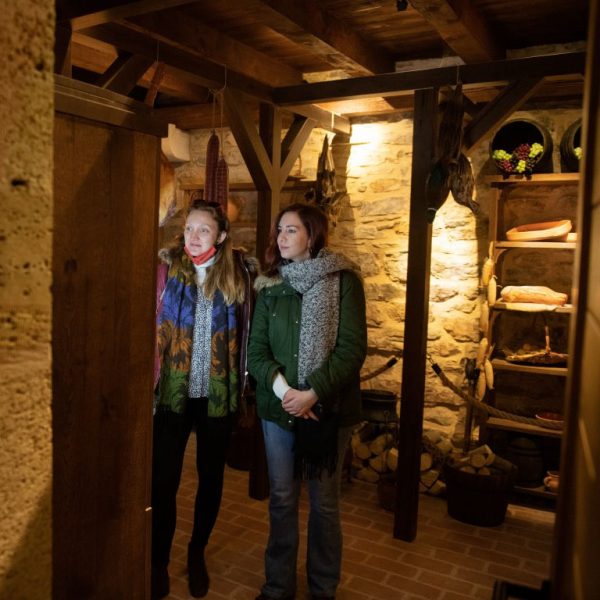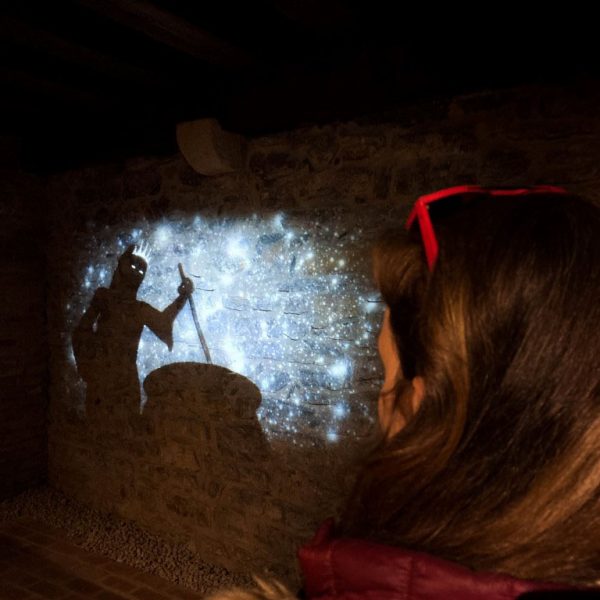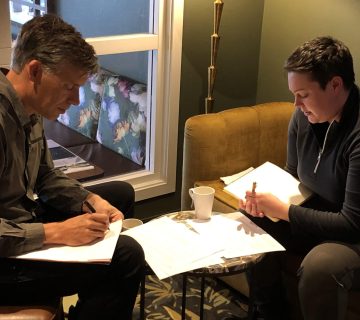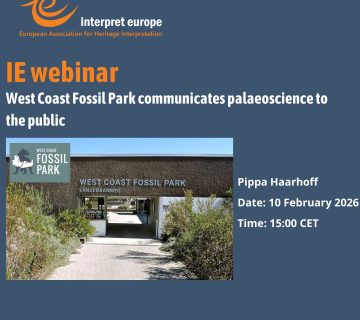Visitor Centre Medvedgrad, on the slopes of mount Medvednica overlooking Zagreb, provides new immersive heritage experience for all.
The old fortified medieval town of Medvedgrad has recently been transformed into a visitor and tourist hub for the Nature Park Medvednica. Opened in October 2021, it is the result of many years of dedicated teamwork on the restoration of this medieval complex, with interpretive planning and the implementation of permanent exhibitions. The main goal of this process was to revive the historic site and turn it into a place where people could celebrate the past, cherish the present and be inspired for the future.
Three exhibitions, three unique experiences
Exhibitions take place in the south tower, the small palace and the grand palace. All three represent interactive, immersive, and participatory experiences.
The exhibition in the south tower tells a story about the kingdom of ancient forests. It conveys the experience of their uniqueness and the rich fauna and flora, merging them with the medieval history and ambience, mysticism, and enchantment of the historical fort. The copper-plated-like illustrations, which stretch across all four walls of a 15-meter-high medieval tower (which is equal to the height of an ancient oak tree), create a mystical atmosphere emphasising the spirit of the place, while interactive multimedia exhibits invite visitors to play and connect. The choreography of the experience culminates in a direct experience of the natural environment from the top of the tower. This all contributes to visitors’ feelings of admiration and awe for nature, building emotions of respect and need for its protection and preservation.
The exhibitions in the two palaces emphasise the local traditions, myths, and legends, conveying the mysterious experiences of wonders of life on the mountain. In the small palace, people can experience ancient stories in an immersive and unique way with the play of light and shadow, sound and smoke effects. A nearby medieval pantry materialises the experience of medieval cuisine through exhibiting groceries, kitchen tools and authentic medieval recipes. In the grand palace, visitors connect with the local stories and events so that they would be relevant for everyone today. Stunning archival photographs, brilliant monochromatic illustrations and inviting interpretive texts to form a historical timeline that calls for interaction. A model of Medvedgrad, enlivened by projections, immerses visitors in a time machine that tells a universal story of happiness and misfortune, natives and newcomers, war and peace, love and hate, decay and renewal.
Challenges and rewards of interpretation projects
The biggest challenge for us interpreters is that we are often unable to follow a project from idea to realisation. Each phase that leads to the final realisation has its challenges in the materialisation of ideas. Although this was a lengthy process of moving from one phase to another, we were lucky to be involved in all phases. In this last phase, our team at Muses Ltd worked devotedly on content development. We curated the whole process, working closely with many respected Croatian artists, photographers, illustrators, writers, sculptors and scale model craftsmen in creating ‘hand-tailored’ experiences. We believe that this was the right way to invite each visitor to a unique and personal, educational and inspiring adventure of connecting with the mountain and its heritage.
Finally, it may be worth remembering that the realisation of the exhibitions presented here is the last phase of the project that began in 2011. Then the Ministry of Environment and Nature of the Republic of Croatia began implementing the EU Natura 2000 Integration Project with a World Bank loan. Our team of museologists and heritage interpreters at Muses Ltd and fellow designers had the honour to be involved in the first steps of a systematic heritage interpretation in protected areas in Croatia.
Melita Trbušić has been a member of the team of Muses Ltd since 2019. She is a passionate museologist and project manager, and she dedicates her work in the field of heritage interpretation to the development of different types and forms of visitor experiences. Melita can be contacted at: info@muze.hr.
To cite this article: Trbušić, Melita (2021) ‘ Tales of nature and the medieval past’ in Interpret Europe Newsletter 4-2021, pg.26-27
Available online: https://interpret-europe.net/wp-content/uploads/2021/12/Newsletter-Winter-2021.pdf

